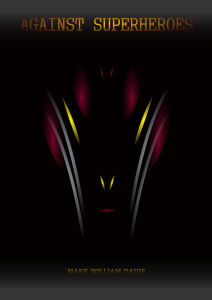 The sessions with Sakara were illuminative and intimate. She asked me about what I remembered from before the transformation. I sat in the chair across from her, the susurration of the air conditioning that seemed to feed the field projectors as much as our comfort was a constant presence beneath our discussion. I remembered very little: hints of childhood, more about the dig at Mt. Hasan, bits of Ela’s sexual mystique, strange flashes of schools and lights. Interrogating this past revealed very little new or surprising to me. I was candid about my limitations concerning the changes to my memory. I was also candid about how with the loss of a personal history came, inevitably, a loss of the essentials of being human. We are continuitities of experience. I can’t describe who I am except as part of my memories and the feelings that surround and enervate them. The protracted calamity of religious ideas that Sakara raised, from ethical concerns about harming others to the status of the unborn all unravel with this consideration. A baby is alive but only tentatively human in the strongest sense. A god knows this—can even feel it as a ribbon into the future—but humans just arbitrarily assign categories that are driven by misunderstandings of these cognitive postures.
The sessions with Sakara were illuminative and intimate. She asked me about what I remembered from before the transformation. I sat in the chair across from her, the susurration of the air conditioning that seemed to feed the field projectors as much as our comfort was a constant presence beneath our discussion. I remembered very little: hints of childhood, more about the dig at Mt. Hasan, bits of Ela’s sexual mystique, strange flashes of schools and lights. Interrogating this past revealed very little new or surprising to me. I was candid about my limitations concerning the changes to my memory. I was also candid about how with the loss of a personal history came, inevitably, a loss of the essentials of being human. We are continuitities of experience. I can’t describe who I am except as part of my memories and the feelings that surround and enervate them. The protracted calamity of religious ideas that Sakara raised, from ethical concerns about harming others to the status of the unborn all unravel with this consideration. A baby is alive but only tentatively human in the strongest sense. A god knows this—can even feel it as a ribbon into the future—but humans just arbitrarily assign categories that are driven by misunderstandings of these cognitive postures.
Why were the gods so capricious, she asked me. Why were they so inhuman? They were good human questions but the answer hardly raised above this faint echo of incapacity. If your mind is subsumed in this web of temporal flux, if you recognize the flammability of experience, and where there are other islands of experiences too, like for a human that there is only instead a moving arc of intransitive expectations and plans, then what is left is the broader permamence of an ineffable now.… Read the rest